Business Register in South Africa taking the lead in standardizing financial and sustainability reporting
Background
Call for transformation
South Africa is widely considered as the economic, commercial, and logistics hub of Southern Africa, developing a market-based economy and remaining a leading destination for businesses looking to expand beyond their borders.
Fulfilling the role of a Companies’ Registrar, and therefore a central regulator in South Africa, the Companies and Intellectual Property Commission (CIPC) has been on a mission to become a more effective regulator by promoting the ease and cost-effectiveness of doing business. CIPC is achieving this by strengthening its regulatory capabilities, efficiently accommodating new data from financial reports, and conducting insightful analytics for informed decision-making.
To meaningfully drive this agenda and reach the desired level of automation & digitization, it also established a modernization strategy. BR-AG’s services were enlisted to develop the taxonomy and its comprehensive architecture to support the implementation of the programme for digitizing financial reporting through the open data exchange standard XBRL (eXtensible Business Reporting Language).
Having implemented the XBRL standard for digital business reporting, the Regulator enabled the electronic submission of annual returns and annual financial reports prepared according to various current reporting regimes, viz. International Financial Reporting Standards (IFRS), IFRS for Small and Medium Enterprises (SMEs), Standards of Generally Recognised Accounting Practice (GRAP) and the Co-operatives Act. Recently, following the launch of International Sustainability Standards Board (ISSB) standards by the South African Institute of Chartered Accountants (SAICA) in 2023, CIPC has also prepared its framework to enable voluntary sustainability disclosure reporting using digital means (go-live on 1 October 2024).
By putting it into action, the Regulator was aiming to allow for greater transparency in corporate conduct by providing investors with essential business and financial information and reducing the administrative costs for reporting businesses, as well as exercising a greater role in surveillance of market conduct and the early detection of irregularities in terms of compliance with the Companies Act.
Project
A leap forward
Embodying the Digital Vision
CIPC pioneered the implementation of XBRL in 2018, which strengthened its role as a regulator. This made CIPC become an example for other regulators to follow from within the jurisdiction. Other regulators considered embarking on a path of developing their taxonomies in line with the CIPC program.
Keeping that in mind, CIPC embarked on migration towards digital financial reporting by designing an overarching action plan which can be termed a Financial Reporting Digitisation Programme.
A set of recommendations were made for XBRL South Africa (XBRL SA), that is, a standard architecture presented by BR-AG experts was the starting point – as a great variety of data scopes, its components corresponded to particular regulations and reporting standards that needed to be thoroughly considered first.
Working as a unified team with CIPC, we also supported them in adopting and implementing the International Financial Reporting Standards (IFRS) XBRL taxonomy according to the XBRL SA Standard Architecture and Governance Framework for the electronic reporting of annual financial statements data, in line with legal requirements; then extending them to cater for local needs – additional disclosures, forms, etc.
This also included the sharing of extensive expert knowledge during the tailor-made series of training sessions and workshops designed specifically to address the unique objectives of CIPC towards leveraging the benefits of digital data standards on a full scale.
Regulators becoming Innovators
To commence its journey into XBRL reporting and implement the Digitization Programme, CIPC leaned on the BR-AG expert support in the development of a taxonomy, reporting area-specific hierarchical data dictionary, aligned with IFRS as defined by the IASB (International Accounting Standards Board), but also S1/S2 standards as defined by the ISSB.
Moving away from the unstructured PDF format to structured, machine-readable Inline XBRL (iXBRL) format, CIPC aimed to minimize human error and eliminate the need to manually examine each and every document. Once XBRL had become the standard submission format, annual financial statement data could be swiftly and seamlessly validated against the CIPC Taxonomy. Basically, a validation engine can run automatically through the rules built into the taxonomy to check that each rule (business and technical) has been adhered to.
The scope around the taxonomy development project for CIPC included:
- conducting a feasibility study and requirements analysis with a set of interviews with internal and external stakeholders;
- conducting a gap analysis of the existing taxonomy with the latest accounting standards, legislative acts and other regulations applicable in South Africa;
- validating the results of the gap analysis with the local entities subject to the future mandate, as well as with other regulators and members of professional bodies impacted by the implementation;
- reflecting observations from the gap analysis in the form of a data model to be considered as a basis for taxonomy creation;
- running public consultations with the market participants and software service providers to ensure the quality of the produced models and accuracy of the information requirements to be covered by the taxonomy;
- developing a new annual version of the XBRL taxonomy reflecting the data model together will all relevant technical documentation;
- running public consultations with the software service providers to ensure the validity of the taxonomy from the technical perspective and correct representation of the underlying data models;
- publishing a final version of the taxonomy within the established annual release cycle.
The services of BR-AG have always been delivered in a timely, professional manner and according to the highest quality standards. They continue to apply a project management approach which ensures delivery of key milestones, on time and on budget, project management par excellence.
Mr. Ratibu Joseph Mathekga
Head of the Department: Corporate Disclosure Regulation and Compliance
Programme Owner: eXtensible Business Reporting Language
Outcomes
Bringing a meaningful difference
With the comprehensive support of BR-AG Technical Reporting Standards experts, XBRL implementation by CIPC resulted in increased regulatory efficiency and effectiveness, and the capability of building up a bank of data to undertake an in-depth analysis of trends. Levelling up the whole project and upskilling CIPC internal teams with the necessary knowledge and tools, together we reached:
- on-time delivery of the new CIPC XBRL taxonomy official releases – 1 October each year;
- seamless transition between different taxonomy versions by CIPC tasked with the development of the reporting gate for XBRL submissions;
- seamless transition between different taxonomy versions by SSP Members (Software/Service Providers) and actual reporting entities with reporting obligations;
- significant increase in the number of timely submissions of annual returns and annual financial reports from the entities subject to the mandate;
- increased quality and accuracy of the data tagged with iXBRL compared to the old pdf format submissions;
- up-to-date reflection of the underlying standards (Companies Act, IFRS, Standards of Generally Recognised Accounting Practice (GRAP), Co-operatives Act, S1/S2 sustainability standards).
Receiving financials successfully via XBRL allowed the CIPC to improve the overall data quality, accuracy, availability, and standardisation and timely delivery of the annual returns and annual financial statements from local companies.
Accountancy SA, published by the South African Institute of Chartered Accountants (SAICA), November 2021 issue, page 108.
Digital financial reporting delivered since implementation of XBRL (as of end of August 2024):
79 868
successful XBRL filings
29 418
filings from unique enterprises
40 408
39 370
IFRS-SME filings
The introduction of digital financial reporting through XBRL is among the factors that contribute to fortifying South Africa’s status as a jurisdiction with a favorable investment climate and the continuously improving ease of doing business score.
In recent years South Africa’s net international investment position (IIP) is showing a positive dynamic demonstrating growing confidence from international investors in South Africa’s economic prospects.
South Africa’s positive net international investment position (IIP) increased from a revised R2 028 billion at the end of December 2023 to R2 537 billion at the end of March 2024.
$111 billion investment – South Africa’s target over the next five years.
Scaling the Success: Refine. Expand. Repeat.
Accelerating the regulator’s reliance on technology through the integration of the XBRL format, together with CIPC, we incorporated into the taxonomy the basic information scope comprising of IFRS, IFRS for Small and Medium-Sized Entities (SMEs) and local requirements of the Companies Act, thus removing bias from reporting as all items appear with equal prominence in a structured format.
Based on the success of the first taxonomy rollout in 2018, the CIPC decided to expand the information scope covered by the taxonomy to other standards like GRAP and translated the requirements of the Co-operatives Act which allowed them to cover under the XBRL reporting mandate other types of entities, including respectively state-owned entities and co-operatives.
Moreover, CIPC has become one of the first authorities in the world to integrate digital taxonomies based on ISSB’s S1/S2 standards into their XBRL framework. South Africa is currently awaiting legislative amendments to Section 29 of the Companies Act No. 71 of 2008, which will make sustainability disclosure fully mandatory. This enhanced ESG framework is expected to improve the completeness of enterprise data submitted to CIPC, providing deeper insights into environmental, social, and governance (ESG) factors.
Through its pioneering use of XBRL in South Africa, CIPC has demonstrated that digital financial reporting can greatly enhance both operational efficiency and regulatory effectiveness. The success of CIPC’s XBRL Programme could potentially elevate South Africa to the level of Standard Business Reporting (SBR).
CIPC envisions that as more regulators, such as SARS, explore the adoption of XBRL and develop their own taxonomies, a unified set of data requirements and a common taxonomy for all regulators could be established. This would streamline compliance, reducing the cost, time, and effort required to meet multiple reporting obligations.
Talk to us to learn more about how our experts help regulatory and supervisory authorities worldwide manage the complexities of digitizing financial and sustainability reporting:



